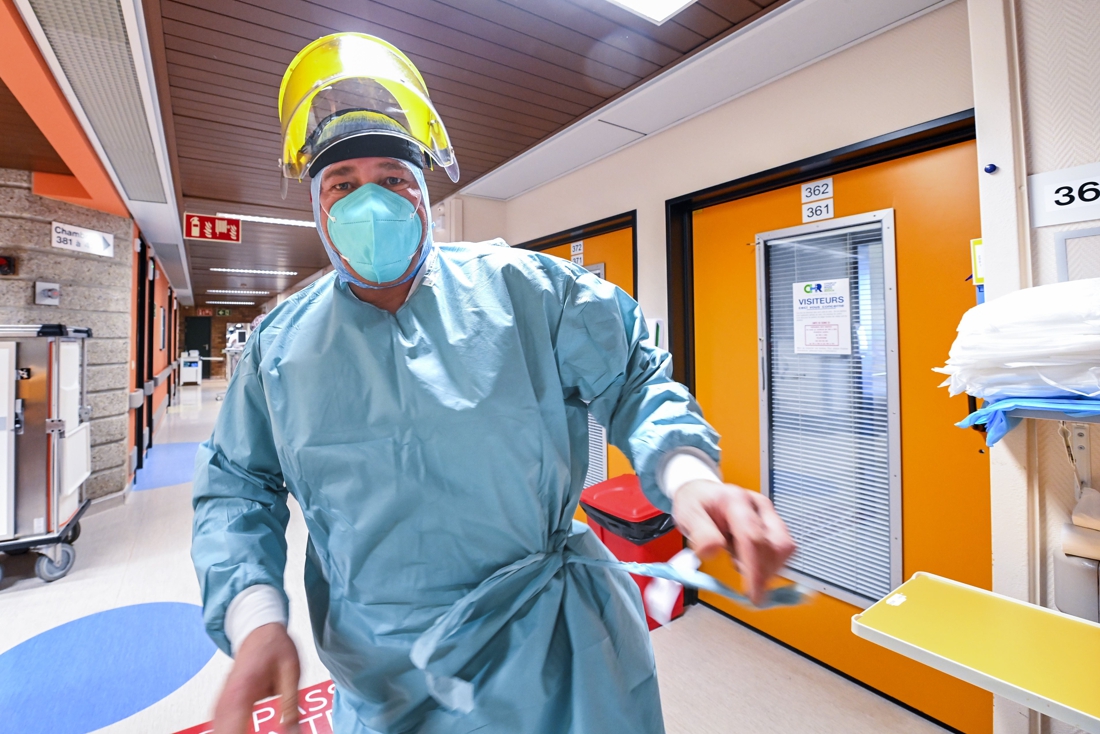Hospitals must move to phase 2A. By Nov. 2, all hospitals must reserve 60 percent of their intensive care beds for covid patients. All planned and postponable interventions must be canceled, but necessary interventions will continue.
–
Last Friday, all hospitals received a letter from the government asking them to scale up to phase 1B by Monday, October 26. That is, they should keep up to 50 percent of their intensive care beds – 1,000 in total – available for covid patients, and four times more in regular covid wards.
But all beds in phase 1B are expected to be occupied by October 28. That is why the FPS Public Health has just asked all hospitals to scale up to phase 2A by 2 November. That is, they must keep 60 percent of their approved intensive care beds available for covid patients.
Utilization of distribution capacity
It is no longer enough to provide four times as many beds in ordinary Covid wards. It must be six times as many. According to the FPS Public Health, this is necessary because, compared with the first wave in the spring, proportionally more patients enter ordinary covid wards than intensive ones.
In the letter, the FPS Public Health emphasizes once again to spread patients as much as possible. ‘The spread capacity offered is currently underutilized’, it says.
Phase 2A has a major impact on non-urgent care. ‘A postponement of regular non-urgent care is necessary’, the letter states. All hospitals must have completed the first three steps of the shutdown plan by Monday. This means that all planned procedures that make use of intensive care, all traditional hospitalizations and all procedures in the day hospital that do not use intensive care must be canceled. This already applies for four weeks.
Necessary interventions will continue
“It should be very clear that all urgent and necessary consultations, examinations and interventions will continue,” the letter states. All current (life) necessary therapies (such as chemotherapy and dialysis) or necessary rehabilitation are also continued. ‘Hospitals are safe places to continue this care.’
Patients who have complaints should therefore not hesitate to contact their doctor and go to the hospital.
– .


